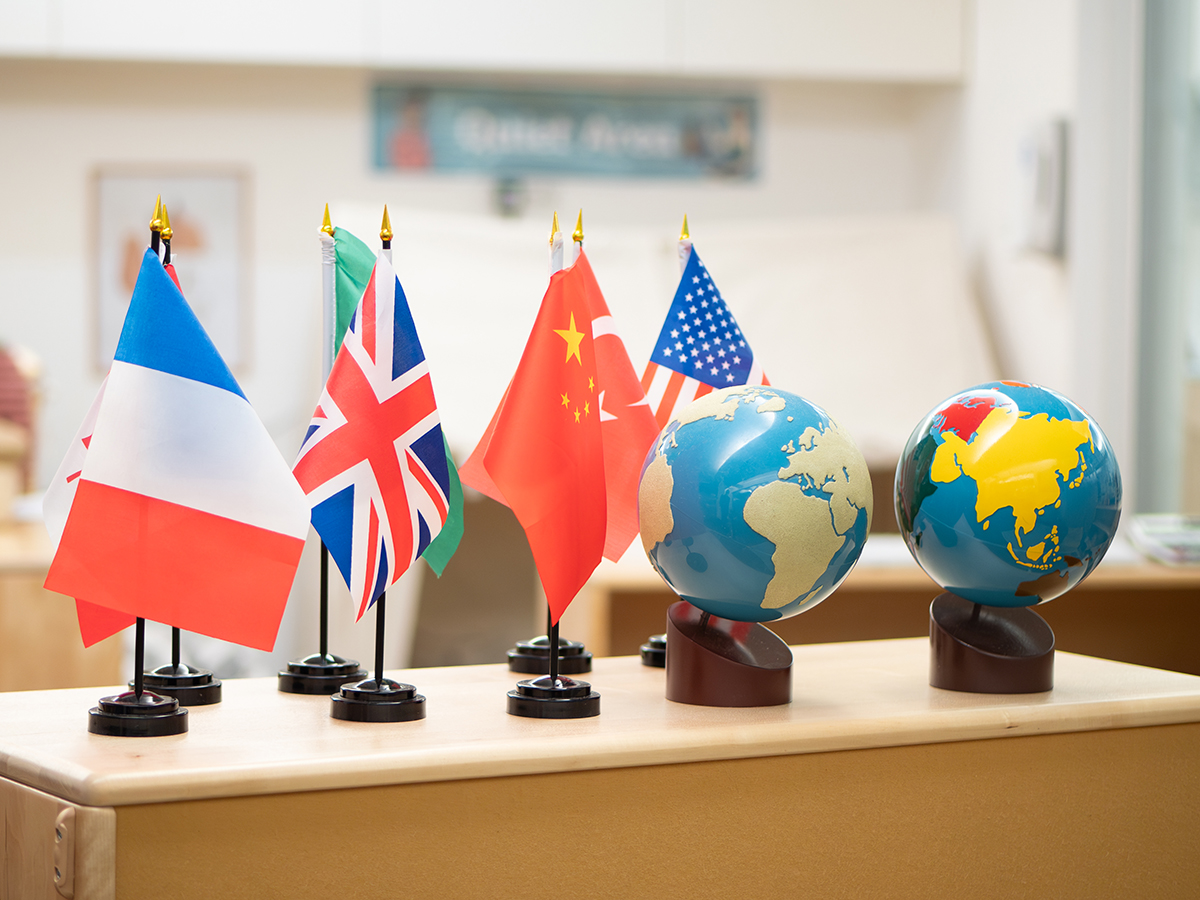About Bilingualism
Our language programme was co-developed with a child psychologist in Paris, and follows extensive study of many of the best bilingual (and multilingual) nurseries in Paris.
Our French teachers give consistent care and support exclusively in French.
This allows us to offer the bilingual environment to all the children attending our setting.
Best of all, they are in addition to our English-speaking team.
The natural use of language (as well as our adherence to the golden rule of “one-person, one-language”) will be of great benefit to the children. We expect many of them to start understanding more and more French within a short time frame.
In 2018, we launched our Introduction to Mandarin program supported by our parents, with great early success. We employ part time Chinese teachers in each of our Angel, Crouch Hill, Paddington and West Hampstead classes who offer activities/songs and some care in Mandarin in a natural way, on a one-on-one basis or in small groups. We will continue to be a bilingual nursery – the Chinese is being offered in a much more subtle immersive way to expose children to different languages and cultures when they are young. Tonal languages are especially beneficial to be exposed to at a young age, as without exposure to the tones when young, it becomes substantially harder when we are older to learn to differentiate them.
We are particularly happy that we did not reduce our English and French staff levels and the Chinese teachers were an addition to our team.
Will my child become bilingual?
We expect that a child
who joins our bilingual environment programme at a young age, say between 1 and 2 years old, will be able to understand French to a high level before starting primary school. It will depend on the child if he or she chooses to speak French, but learning to understand is already a big step in the right direction.
Any future language study will be much easier. It is also important to remember that speaking a second language is only one of the benefits of our bilingual environment.
What are the benefits of a bilingual environment?
We believe they are profound and wide-ranging. Many studies* show knock-on benefits. “Babies and toddlers are cognitively advantaged by growing up in two or more language environments.” (Siraj-Blatchforn & Clarke, 2000)
What language system do you use?
We use the one-person one-language system. So you won’t find our French speaker using English or mixing words in sentences. We aim for the natural usage of language – although obviously we have more English speakers than French speakers.
How will this work in the classroom?
The teachers we have found will work Monday to Friday, from 8 to 6, giving consistent care and support exclusively in French. This allows us to offer the bilingual environment to all the children attending our setting. Best of all, the French teacher will be in addition to our Montessori Key Person.
What is the best age to start learning a new language?
In many ways, the younger the better. Children as young as 2 years old can individually identify all the languages spoken in the home environment. The early years are often described as a “window of opportunity” for language learning. Older children become embarrassed more easily when making mistakes in a new language, whereas younger children are eager to learn by listening.
Acquiring familiarity with the concept of foreign languages makes children more likely to succeed in learning new languages later in life, even if the original languages are forgotten. We are introducing French because children will nearly always have the option to continuing it in their future schooling.
Is this a tried-and-tested theory?
Bilingual education is the norm in many parts of Canada, Belgium, Switzerland, Scandinavia and Singapore (amongst others) – all with great success. These countries understand the advantages of teaching additional languages. By ensuring that your children have an English Key Person, we can guarantee plenty of exposure to English speaking staff. By closely monitoring every child’s progress, we are confident
that every child on the programme will reach his or her potential in English, as well as phonics, all whilst benefiting from our bilingual environment.
Is this different from what other schools offer?
Yes! Many schools offer 1 or 2 short sessions a week. Although these are better than nothing, there is a limit on how much a large group can learn in a short session once a week! Our French teachers will be here all week from 8 to 6, providing consistent care in French
alongside the Key Persons – you can’t really compare the benefits of that with a 20 minutes “lesson”.
* Peal, E. & Lambert, 2000, The Relationship of bilingualism to intelligence
Mechelli et al, 2004, Neurolinguistics: Structural plasticity in the bilingual brain
Ricciardelli, L.A., 1992 Creativity and bilingualism
McLeay, 2003, The Relationship between bilingualism and the performance of spatial tasks
Bialystok, E., 1987 Influences of bilingualism on metalinguistic development
Click here to add your own text







